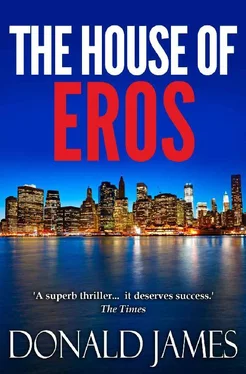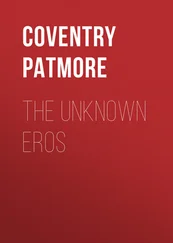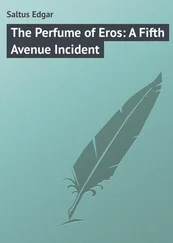‘No. I’m looking for someone of great importance to me.’
‘I read your eyes. You mean him ill.’
‘I have a duty to perform.’
He inclined his head. ‘Kim Hoang says I can trust you absolutely.’
‘You can.’
The old man shuffled in his seat. ‘I accept his word. And yours.’ He paused. ‘My business is only in the soft end, you understand. The boys and girls who work for me do it voluntarily. For the money.’ She nodded. ‘The men who buy, the clients, call themselves collectors. They are prepared to pay well for classic material.’ The old man waved his hand dismissively. ‘You’ve heard stories of items using big Hollywood stars when they were young and reckless. Garbo before she left Sweden. Monroe of course. There are more stories of her black pictures than there are of sunken treasure. No doubt some of these things exist. But mostly they exist only in the mind and greed of collectors. It’s chasing moonbeams, Nan Luc.’
‘I’m talking about classics,’ she said. ‘Classics that do exist.’
‘For instance?’
‘Eros Films, for instance.’
‘Ah,’ the old man’s eyes never left her. ‘Eros. Specialist interests. I have never seen any Eros material. I know it’s old. Goes back to the last days of Saigon. They say the prints are bad.’
‘Even so.’
‘It is a dangerous area to deal in, Nan Luc.’ Tron’s thin jowls wagged loose and yellow.
‘My thought was to trace the man Stevenson who made the Eros movies.’
Tron shook his head slowly. ‘I can be of no help there. I had not even known his name.’
Nan waited, her excitement rising. She watched Tron’s eyes roam the blank wall above her head. She had begun to suspect he knew something. It was characteristic of an older generation of Vietnamese to spend time building the problem before demonstrating the solution. ‘I see no easy answer,’ she said.
He shook his head, poking his tongue through his gapped teeth. ‘But because Kim Hoang asked me to do everything in my power…’ He let the sentence trail.
Nan lifted her teacup.
‘I have a family obligation to point you in a helpful direction,’ Tron said sombrely, but he was fighting a small smile of triumph. ‘I can give you a name. Formerly a stud.’ His hazy yellow eyes met hers. ‘You must go see my colleague, Charlie Mandrake.’
In London’s Hyde Park it was a cold, clear December morning. The little girl, dressed in a pale blue anorak and red woollen hat, skipped along the edge of the lake and sang nursery rhymes oblivious of the amused glances she was attracting.
A few yards behind her mother, Monika, watched while she opened her bag of crusts and threw bread to the ducks, then turned to see the figure of her ex-husband walking quickly along the asphalt path towards them. The child, absorbed in the antics of the ducks had not seen him.
Monika walked a few paces towards him and stopped. She could see the expression on his face. He nodded. It was more an affirmation than a greeting.
‘An hour ago,’ he said, ‘she was more or less conscious. Not in pain.’
‘I’m glad of that at least,’ Monika said. ‘You got the answer-phone message we’d be here?’
‘Yes.’ Max tensed as the child stepped too close to the water’s edge.
‘She won’t fall in,’ Monika said. ‘Relax. You can now.’
He shrugged. ‘There’s no point in pretending she was a likeable woman, you know that. She was stiff with pride, selfish mostly. Now she’s dead I don’t think I feel anything much.’
‘I suppose there’s a lot for you to do now.’
He nodded. ‘My mother had more bank accounts than W. C. Fields. I’ve already been warned by her solicitor that he doesn’t know the full extent of her estate. He’s optimistic, he says. He thinks it’ll take no more than ten years. That’s what passes for English legal humour.’
‘Have you thought about the funeral?’
‘That was decided weeks ago. By her. Putney Vale Cemetery. I guess it’ll be Wednesday or Thursday.’
‘Katey and I won’t come.’
‘No. Better that way.’ He paused. ‘Katey’s going to be a rich little girl now. Or in a few years anyway.’
Monika’s face was white. ‘I think I was afraid of that. It doesn’t seem fair.’
‘As far as my mother was concerned, Katey was her grandchild. She doesn’t come into the first bunch of money until she’s eighteen. It’ll work out OK.’
They walked in silence.
‘I heard about the Vietnamese girl,’ Monika said. ‘I’m sorry, Max.’ He grunted, his breath streaming into the cold air. ‘Is there nothing more you can do?’
‘No. Nothing more.’ Max shoved his hands deep into his pockets.
They walked on, following the progress of the child in the red hat along the edge of the lake as she threw handfuls of bread to the ducks that arrowed towards her across the flat water.
* * *
In New York it was colder. The wind from the East River bit at her cheeks and set her hair streaming behind her. From where she paid off the cab Nan Luc could see the wooden pier pushing into the river and the jumble of clapboard, cinder block and rusting tin under which, on the older supporting brickwork, was painted: Center for 21st Century Arts. Welcome All!
Nan pushed at the door and found herself in a wide passageway lined with perhaps fifty or sixty rusting bicycles. Mostly the wheels had gone or the spokes rotted away so that each machine stood tipped forward on its front forks. The makes were from all over the world: a BSA, a Sunbeam, a heavy early century aluminium Peugeot. Music thudded from above. A corkboard, brightly painted, carried the name Charles Mandrake and pinned to the board a glove with a worn index finger pointing into the dark end of the passageway. Threading her way through to the base of a staircase Nan Luc climbed the cement stairs to the floor above.
The music got louder. Light flashed in blue segments through the glass transom above the single door. There seemed to be no point in knocking. She pushed the door open and stood squinting into the buzzing flashes of acetylene light.
‘Yo!’ a voice called and screwing up her eyes she saw, as the flashing light stopped, a figure lifting a face shield from his eyes. The man who casually threw aside the acetylene torch and eased the shield off his head was into his early forties, his black jeans torn below the right knee, his denim shirt, sleeveless, and his grey-blond hair long and worn in bunches. His straight toothed smile in his unshaven face was friendly. He waved the face shield in welcome.
‘Hi,’ he said. ‘Charlie Mandrake. Girls like you don’t visit me every day any more so I guess you must be Nan Luc. Old Mr Tron tells me he owes you a favour. No offence but that could make him one hell of a lucky guy. What can I do for you, Nan Luc?’
Nan looked at the huge structure of old bicycles welded into something resembling a prehistoric animal. ‘Mr Tron didn’t tell me you were an artist.’
‘What did he say I was?’
‘Someone who could help me with a problem.’
Mandrake took her elbow. The view was across the river to the end of the La Guardia runway. ‘You want coffee, a drink…?’ She shook her head and he released her arm and went across to an open fronted cupboard where instant coffee, a milk carton and packet sugar stood beside a bottle of whisky. ‘Old Tron says you’re looking for information on old Eros numbers. Is that true?’
‘You’re familiar with them?’
Charlie smiled. ‘I know some of them are gelignite to handle.’ He poured himself a drink. ‘You’re not looking to buy? If you are it’s not my trade, darling.’
She shook her head. ‘Information, that’s all.’
Читать дальше












